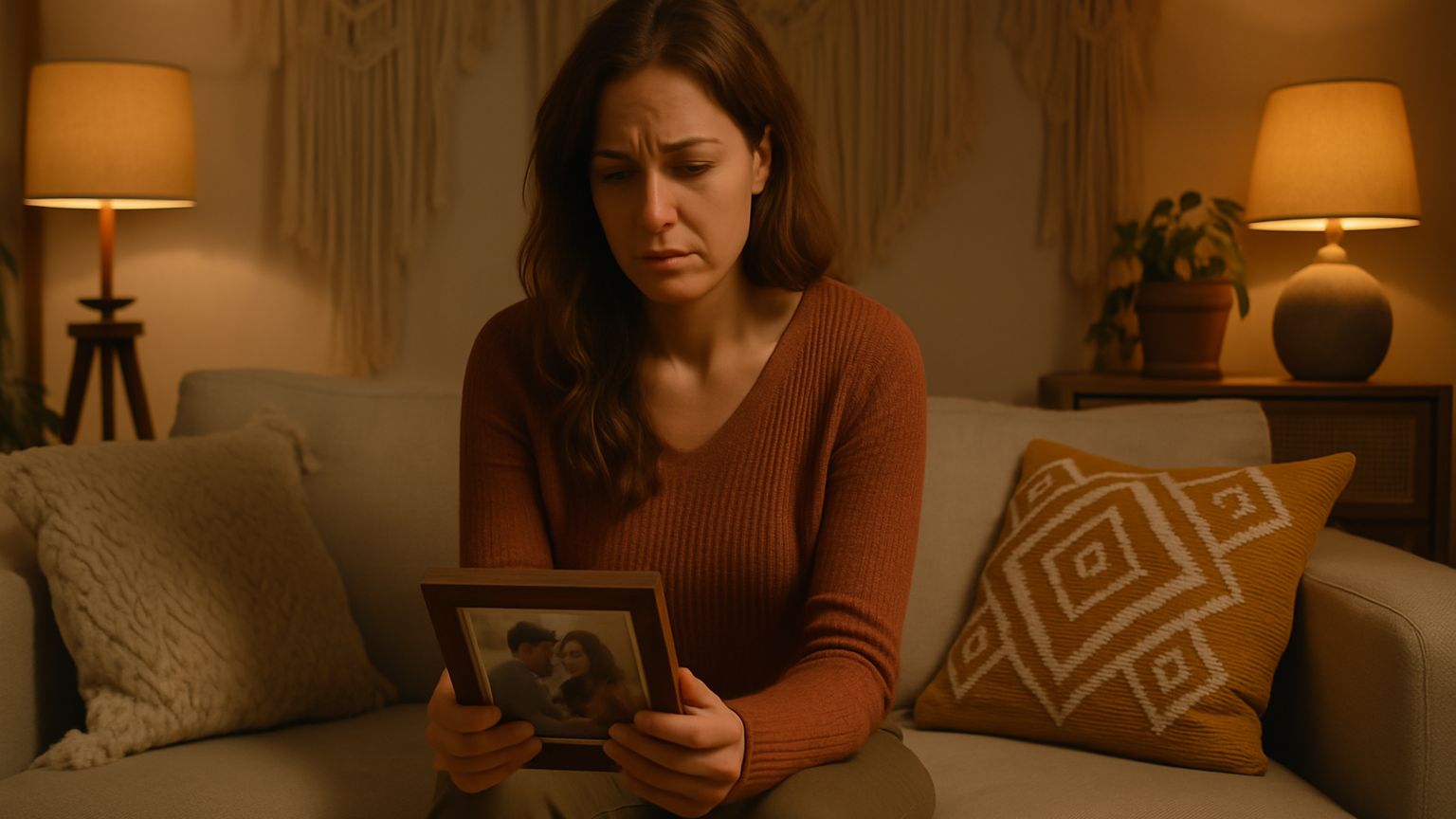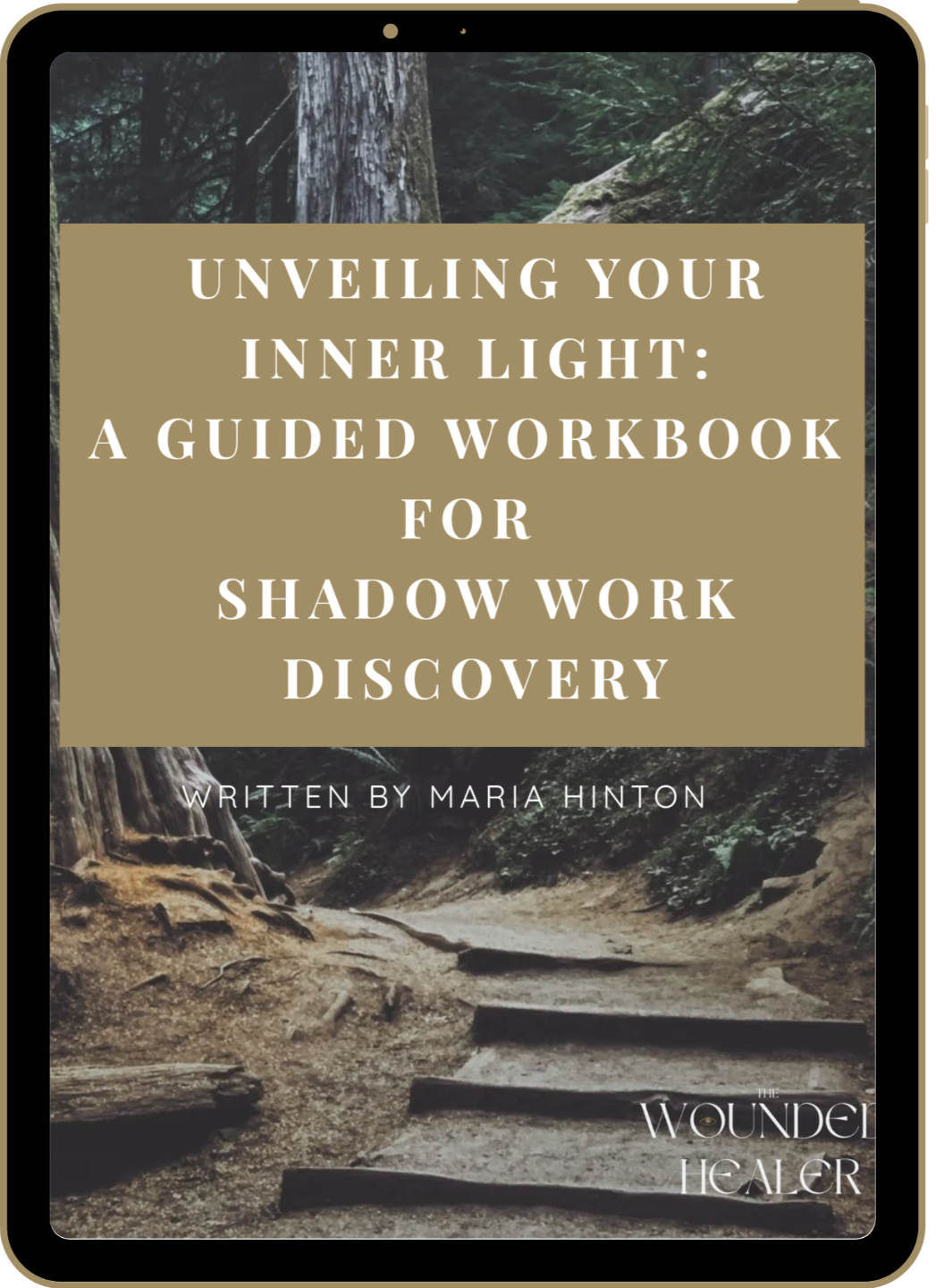The Mother Wound's Impact on Romantic Relationships: Understanding and Healing the Patterns
Jun 05, 2025
The Invisible Thread: How Mother Wound Patterns Shape Our Love Lives
The relationships we form as adults are profoundly influenced by our earliest attachments. For many women, the mother relationship serves as the primary template for how we experience love, trust, and intimacy. When this foundational relationship carries unresolved wounds, these patterns often emerge—sometimes with startling similarity—in our romantic connections.
Understanding how the mother wound impacts your romantic relationships isn't about placing blame on your mother. Rather, it's about recognizing these inherited patterns so you can make conscious choices about how you want to love and be loved. This awareness creates the possibility for more authentic, fulfilling relationships that aren't constrained by old wounds.
Understanding the Mother Wound in Relationship Context
The mother wound encompasses the pain and unresolved trauma that stems from the relationship with your mother or maternal figure. This wound can result from various maternal dynamics, including emotional absence, criticism, enmeshment, role reversal, or intergenerational trauma passed through the maternal line.
In romantic relationships, the mother wound often manifests in ways we don't immediately connect to our maternal relationship. Yet upon closer examination, the patterns become clear—we may unconsciously seek partners who reflect aspects of our mother relationship or recreate familiar (though painful ) dynamics that feel paradoxically comfortable because of their familiarity.
Common Relationship Patterns Stemming from the Mother Wound
1. The Approval-Seeking Pattern
Mother Wound Origin: If your mother's love felt conditional upon your achievements, appearance, or behavior, you likely developed a deep pattern of seeking approval to feel worthy of love.
How It Shows Up in Relationships:
- Constantly seeking reassurance from partners
- Difficulty trusting expressions of love without "proof"
- Changing yourself to please partners
- Feeling devastated by criticism or perceived rejection
- Prioritizing your partner's needs while neglecting your own
Healing Insight: "The part of me that constantly seeks approval is trying to secure the love I didn't consistently receive as a child. This pattern made sense then, but now I can learn to validate myself and choose partners who love me for who I am, not what I do."
2. The Emotional Caretaker Pattern
Mother Wound Origin: If you had a mother who was emotionally volatile, unavailable, or who relied on you for emotional support, you likely learned to be hyperaware of others' emotions while disconnecting from your own.
How It Shows Up in Relationships:
- Attracting partners who need "fixing" or emotional management
- Taking responsibility for your partner's feelings
- Difficulty identifying and expressing your own emotional needs
- Feeling anxious when you can't "solve" your partner's distress
- Exhaustion from the one-sided emotional labor in relationships
Healing Insight: "I learned to be an emotional caretaker because it was the only way to maintain connection with my mother. Today, I can recognize that my partner's emotions belong to them, and I can offer support without taking responsibility for their feelings."
3. The Abandonment Fear Pattern
Mother Wound Origin: If your mother was physically or emotionally absent, unpredictable, or if you experienced separation trauma, you may have developed deep fears of abandonment.
How It Shows Up in Relationships:
- Anxiety when partners need space or independence
- Tendency toward jealousy or possessiveness
- Difficulty being alone or between relationships
- "Testing" partners to see if they'll leave
- Either avoiding commitment entirely or becoming overly dependent
Healing Insight: "My fear of abandonment comes from real experiences where I felt unsafe or alone as a child. I can acknowledge this fear while building my capacity to trust and developing a secure sense of self that doesn't depend on constant reassurance."
4. The Perfectionism Pattern
Mother Wound Origin: If your mother was highly critical or had impossibly high standards, you may have internalized the belief that you must be perfect to be worthy of love.
How It Shows Up in Relationships:
- Difficulty being vulnerable or showing "flaws"
- Shame spirals when you make mistakes
- Exhaustion from trying to be the "perfect" partner
- Attraction to critical partners who reinforce familiar dynamics
- Difficulty receiving love when you're struggling or imperfect
Healing Insight: "Perfectionism was my protection against criticism and rejection. I now understand that true intimacy requires showing up authentically, with all my imperfections. My worth isn't determined by flawlessness."
5. The Emotional Wall Pattern
Mother Wound Origin: If expressing emotions was discouraged, punished, or exploited in your maternal relationship, you may have learned to protect yourself by disconnecting from your feelings.
How It Shows Up in Relationships:
- Difficulty with emotional intimacy and vulnerability
- Shutting down during conflict or deep conversations
- Feeling overwhelmed by partners who are emotionally expressive
- Using intellectual analysis to avoid feeling emotions
- Partners complaining that you're emotionally unavailable
Healing Insight: "I built emotional walls to protect myself when vulnerability wasn't safe. While this served me then, now these walls prevent the connection I truly desire. I can gradually learn to feel safe with my emotions and share them with trusted others."
6. The Boundary Struggle Pattern
Mother Wound Origin: If your mother had poor boundaries (either through enmeshment or neglect), you didn't learn healthy boundary development as a child.
How It Shows Up in Relationships:
- Difficulty saying no or expressing needs
- Either rigid, inflexible boundaries or virtually none at all
- Feeling responsible for your partner's wellbeing
- Allowing violations of your boundaries to avoid conflict
- Confusion about where you end and your partner begins
Healing Insight: "My boundary struggles reflect what I experienced in my earliest relationship. Boundaries aren't walls—they're the guardrails that allow me to stay connected to myself while being in relationship with others."
7. The Worthiness Question Pattern
Mother Wound Origin: If your mother couldn't mirror back your inherent worth and lovability, you may have developed a core belief that you're fundamentally unworthy of love.
How It Shows Up in Relationships:
- Settling for partners who don't treat you well
- Feeling surprised or suspicious when treated with love and respect
- Unconsciously sabotaging healthy relationships
- Believing you need to earn or prove your worthiness
- Difficulty receiving love, compliments, or care
Healing Insight: "The question of my worthiness stems from not receiving the mirroring of my inherent value as a child. My worth isn't something to be earned—it's my birthright, regardless of what anyone else can or cannot see in me."
The Healing Journey: Transforming Relationship Patterns
Recognizing these patterns is the crucial first step toward healing. The good news is that romantic relationships, while often triggering these mother wound patterns, also offer a powerful context for healing them. Here's how to begin this transformative work:
1. Develop Pattern Awareness
Practice: Create a "pattern journal" where you document:
- Relationship triggers and your responses
- Similarities between current reactions and childhood experiences
- Physical sensations that accompany emotional triggers
- The younger self who might be showing up in these moments
This awareness creates space between trigger and response, allowing you to make new choices rather than automatically following old patterns.
2. Communicate Your Healing Journey
Practice: If you're in a relationship, consider sharing your healing journey with your partner in a way that:
- Takes responsibility for your patterns without blame
- Helps them understand your triggers without making them responsible
- Invites their support without expecting them to "fix" your wounds
- Creates shared language around your healing process
This vulnerable sharing can deepen intimacy while creating a more conscious relationship.
3. Reparent Yourself in Triggering Moments
Practice: When relationship triggers activate mother wound patterns:
- Place a hand on your heart and speak to your inner child
- Acknowledge the younger part that's feeling threatened or abandoned
- Offer the comfort, validation, or protection that was missing
- Remind yourself that present triggers often connect to past wounds
This self-parenting helps rewire your nervous system response over time.
4. Practice Conscious Partner Selection
Practice: If you're dating or considering new relationships:
- Create a "relationship patterns inventory" noting the types of partners you've chosen
- Identify how these choices may connect to your mother relationship
- Define the qualities that would support your healing rather than reinforce wounds
- Practice noticing red flags that suggest familiar but unhealthy dynamics
- Be willing to feel the discomfort of choosing differently
Conscious partner selection is a powerful way to break generational patterns.
5. Develop Relationship Differentiation
Practice: Work on strengthening your sense of self within relationships:
- Practice stating needs and preferences even when they differ from your partner's
- Notice when you abandon yourself to maintain harmony
- Develop comfort with the natural separateness that exists even in close relationships
- Build your capacity to self-soothe rather than requiring external regulation
This differentiation creates healthier attachment without enmeshment or codependency.
6. Heal Through Corrective Experiences
Practice: With awareness, relationships can offer healing through:
- Experiencing being loved in ways your mother couldn't provide
- Practicing receiving care and attunement
- Having your emotions validated and held
- Learning that conflict doesn't have to mean abandonment
- Discovering that you can be fully seen and still loved
These corrective experiences gradually rewrite your internal relationship template.
When Mother Wound Patterns Require Additional Support
While self-awareness and conscious relationship practices can facilitate significant healing, sometimes additional support is beneficial, especially if:
- You find yourself repeatedly drawn to partners who reinforce mother wound patterns
- Relationship triggers cause overwhelming emotional responses
- You struggle to maintain healthy relationships despite your best efforts
- You notice you're recreating maternal dynamics with your own children
- Your relationship patterns are significantly impacting your quality of life
In these cases, working with a therapist who specializes in attachment trauma and the mother wound can provide crucial guidance and support.
The Ripple Effects of Healing
As you heal the mother wound's impact on your romantic relationships, you'll likely notice positive changes extending beyond your love life:
- Greater authenticity in all relationships
- Improved ability to be present with emotions
- Reduced anxiety and relationship insecurity
- More energy as you release exhausting patterns
- Increased capacity for joy and pleasure
- Breaking of intergenerational patterns
Remember that healing isn't about reaching perfection in your relationships. It's about bringing consciousness to unconscious patterns, offering yourself compassion for the ways you've been shaped by early experiences, and making new choices that align with your authentic desires for connection.
By understanding how the mother wound impacts your romantic relationships, you reclaim the power to love and be loved in ways that reflect your true worth and capacity for connection.
Ready to Transform Your Relationship Patterns?
If you recognize these mother wound patterns in your romantic relationships and are ready to create healthier, more fulfilling connections, The Wounded Healer offers specialized programs designed to support this transformative work.
Our trauma-informed approach combines attachment healing, somatic practices, and relationship pattern recognition in a supportive community setting.
Join our "Loving After Loss" 8-week program where you'll:
- Work with expert facilitators trained in attachment trauma and the mother wound
- Experience powerful somatic release techniques for relationship triggers
- Connect with a community of women on similar healing journeys
- Receive personalized guidance for your specific relationship patterns
- Learn practical tools to implement in your daily life and relationships
Transform your capacity for authentic connection and love. Your healing journey begins now.







